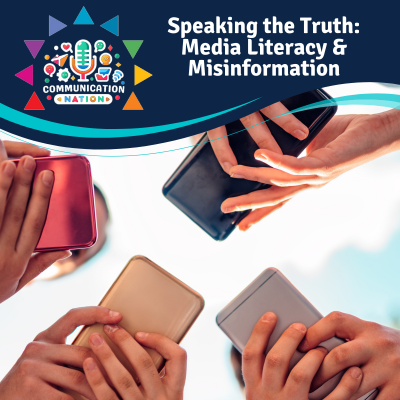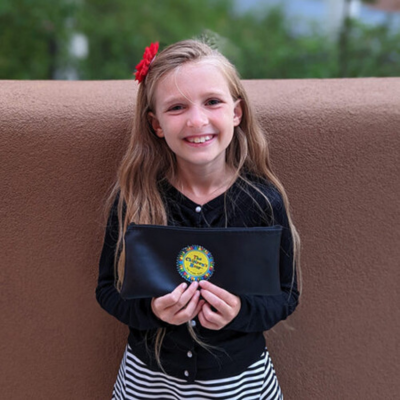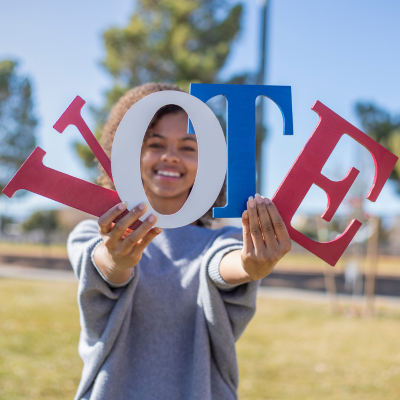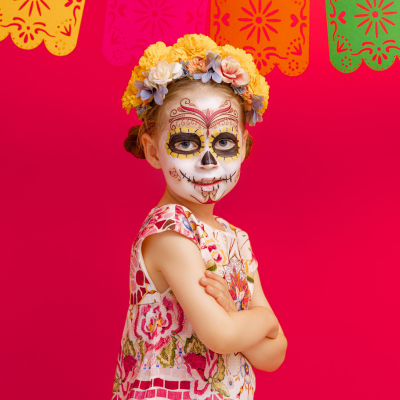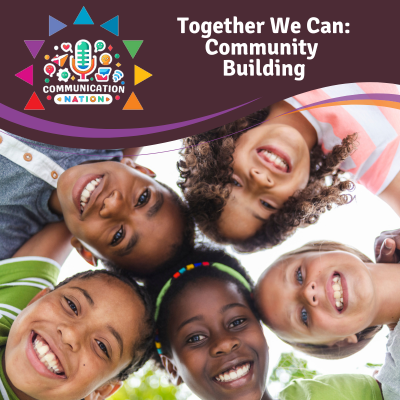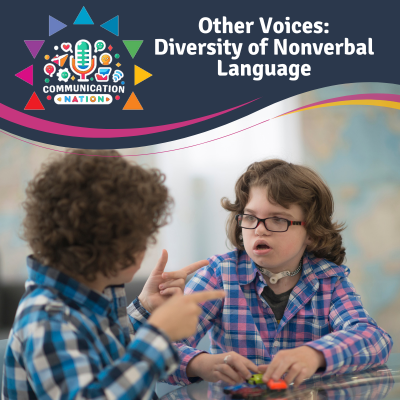Communication Nation: Speaking the Truth
Update: 2024-08-04
Description
Communication Nation Episode One: Speaking the Truth: Media Literacy & Misinformation is the first of a four part radio series exploring communication to better understand one another. We can only have effective communication when we can trust our sources. We learn about media literacy and misinformation from Eisha Buch at Common Sense Media.
The word media refers to any television, social media, internet news sites, newspaper, book, magazine, podcast, movie, and other source of information we use to learn about the world around us, and to be entertained. Eisha begins by teaching us what the term media literacy means.
Media literacy means asking yourself who created this media, why did they create it, do they have a bias toward a specific point of view, is this the full story? As we explore media literacy, we learn about the concept of a media diet. Do you know how much media you are consuming, and which kinds? Track your media diet!
Everyone has a bias which is our view of the way things are, even if it's not accurate. Favoritism for or against a thing, idea, person, or group, can lead to unfair treatment, and judgments that are not accurate. Our media has biases too. When you hear a story about whether something is good or bad, remember to ask who is telling the story, why are they telling it, and do they have a bias?
We also explore misinformation on this episode with Eisha Buch. Sometimes people might post something online that is false information in order to make a joke. Other times people post information without fully checking the sources, and using their media literacy skills.
But there is also another reason a story in a publication online, in social media, or elsewhere might be written with fake information. Sometimes someone, or groups might try hurt their competition by pushing disinformation. Disinformation is hurtful, and makes people believe things that are not true.
This show was produced by our Executive Producer, Katie Stone, with help from Senior Producer Christina Stella, and producer Eli Henley. Chad Scheer provided live engineering at Outpost Performance Space. Lorraine Archibald wrote our learning guides. We also had support from 2024 Summer Intern Thaniel Lentz.
© 2024 The Children's Hour Inc, All Rights Reserved
This program is made possible by funding from the National Endowment for the Humanities and the United We Stand Connecting Through Culture Initiative, and by the New Mexico Humanities Council. Any views, findings, conclusions, or recommendations expressed in this program do not necessarily represent those of the National Endowment for the Humanities or the New Mexico Humanities Council
The word media refers to any television, social media, internet news sites, newspaper, book, magazine, podcast, movie, and other source of information we use to learn about the world around us, and to be entertained. Eisha begins by teaching us what the term media literacy means.
Media literacy means asking yourself who created this media, why did they create it, do they have a bias toward a specific point of view, is this the full story? As we explore media literacy, we learn about the concept of a media diet. Do you know how much media you are consuming, and which kinds? Track your media diet!
Everyone has a bias which is our view of the way things are, even if it's not accurate. Favoritism for or against a thing, idea, person, or group, can lead to unfair treatment, and judgments that are not accurate. Our media has biases too. When you hear a story about whether something is good or bad, remember to ask who is telling the story, why are they telling it, and do they have a bias?
We also explore misinformation on this episode with Eisha Buch. Sometimes people might post something online that is false information in order to make a joke. Other times people post information without fully checking the sources, and using their media literacy skills.
But there is also another reason a story in a publication online, in social media, or elsewhere might be written with fake information. Sometimes someone, or groups might try hurt their competition by pushing disinformation. Disinformation is hurtful, and makes people believe things that are not true.
This show was produced by our Executive Producer, Katie Stone, with help from Senior Producer Christina Stella, and producer Eli Henley. Chad Scheer provided live engineering at Outpost Performance Space. Lorraine Archibald wrote our learning guides. We also had support from 2024 Summer Intern Thaniel Lentz.
© 2024 The Children's Hour Inc, All Rights Reserved
This program is made possible by funding from the National Endowment for the Humanities and the United We Stand Connecting Through Culture Initiative, and by the New Mexico Humanities Council. Any views, findings, conclusions, or recommendations expressed in this program do not necessarily represent those of the National Endowment for the Humanities or the New Mexico Humanities Council
Comments
Top Podcasts
The Best New Comedy Podcast Right Now – June 2024The Best News Podcast Right Now – June 2024The Best New Business Podcast Right Now – June 2024The Best New Sports Podcast Right Now – June 2024The Best New True Crime Podcast Right Now – June 2024The Best New Joe Rogan Experience Podcast Right Now – June 20The Best New Dan Bongino Show Podcast Right Now – June 20The Best New Mark Levin Podcast – June 2024
In Channel

